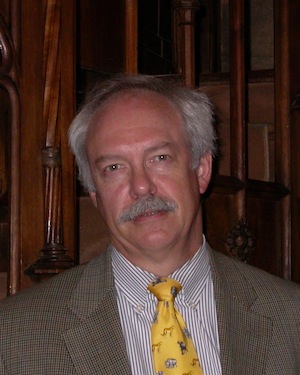
I was teaching youth and college Sunday school a few years ago, and we were discussing the Apostles’ Creed, particularly the part where Christians confess belief in the ‘holy and catholic church’. One student spoke up and asked what the Creed meant by ‘catholic’. Without much thought, I rattled off the same answer I had received my own Sunday school teachers several years before: ‘catholicity’ means universality – the church is spread throughout the world; it is everywhere. But the question continued to bug me. Is the church’s catholicity merely its geographic presence? During my time in seminary and now in graduate school, I remain befuddled by how much attention has been focused on the church’s unity and holiness while relatively little has been given to catholicity.
I believe that it’s time for Reformed Christians to reclaim catholicity as constitutive to how we understand church. After all, Reformed churches (Presbyterian and otherwise) recite the Nicene Creed or Apostles’ Creed on various Sundays, meaning that every week, scores of us confess the church’s catholicity. But how many of us really know what that means?
___________________________________________
Following Jesus requires the church to continually reorient itself toward Jesus Christ. This cannot be done individually; thus, the importance of the church catholic.
___________________________________________
As I will seek to explain, catholicity is more than simply a statement of the church’s worldwide presence. In fact, I believe that the church’s catholicity lies at the heart of what it means to be a missional church. If we expect to live missionally, then we must also strive to live catholically.
 What does it mean for the church to be ‘catholic’? The term is difficult to define; it was meant to be evocative and signal openness to a diversity of expressions. Its first recorded use comes from around 110 CE in St. Ignatius of Antioch’s letter to the church in Smyrna. He writes, “Where Jesus Christ is, there the catholic Church is.” [1] This simple formulation gives us an important clue about how Christians understand the church. Or rather, how Christians should understand church.
What does it mean for the church to be ‘catholic’? The term is difficult to define; it was meant to be evocative and signal openness to a diversity of expressions. Its first recorded use comes from around 110 CE in St. Ignatius of Antioch’s letter to the church in Smyrna. He writes, “Where Jesus Christ is, there the catholic Church is.” [1] This simple formulation gives us an important clue about how Christians understand the church. Or rather, how Christians should understand church.
We Christians do not come to understand the church’s mission by first looking inward – that is, by figuring out how we can ‘do church better’. Our first move must be to look out of ourselves towards Jesus Christ, our model and teacher in our understanding of the church. As such, the church does not engage in ministries of healing, teaching, and even resistance against injustice simply because those are good ideas things to do. The church heals, teaches, and protests against injustice because Jesus healed, taught, and turned over the tables of the traders in the Temple’s Outer Court.
The richness of catholicity can be further appreciated if we attend to its Greek origins. The Methodist theologian Justo Gonzalez is helpful here. Holon denotes the core, the essential center, whereby kat indicates that which attests to or revolves around the holon. Following Ignatius of Antioch (and many after him) we can recognize that Jesus is the holon, the whole. The gospel of Jesus Christ, the kat, attests to Jesus Christ from a kaleidoscope of contexts, like many small pieces of stained glass. The catholicity of the church rests on the dynamic interplay between the kat and holon. [2]
___________________________________________
Churches around the world are accountable to one another. We encourage and exhort each other to part with our possessions and follow Jesus Christ.
___________________________________________
The church catholic, then, places Jesus Christ at the center of its identity; and it does not have the luxury of picking and choosing which Jesus it might like to follow. The church is no theological sushi buffet, where Christians can choose to follow a family-friendly, middle-class Jesus but pass over the Jesus who commanded the rich young man to sell all of his possessions and give the money to the poor (Matt. 19:16-22). The church catholic must proclaim its fidelity to the entirety and fullness of God, the God who has worked and still is at work among people from East and West, North and South.

This has significant ramifications for the church’s missional identity. The church is sent into the world to bear witness to the fullness of Jesus Christ. This task allows no room for a discipleship of convenience; there is no conditional following. We are not at luxury to say, ‘I’ll follow Jesus…as long as I get to keep my fat bank account!’ or, ‘I’ll follow Jesus after I have achieved certain goals in life.’ This was the challenge Jesus placed before the rich young man, who claimed to have followed the entirety of the commandments but failed to notice that in his spiritual walk, he was dragging behind him a wealth with which he refused to part. Following Jesus requires the church to continually relinquish its hold on possessions and reorient itself toward Jesus Christ.
This continual orientation and reorientation cannot be done individually; thus, the importance of the church catholic. As St. Augustine of Hippo regularly reminds us in his writings, the church of Jesus Christ is not limited to the Christians with whom we are familiar; on the contrary, the church and its mission stretch across the world. [3] Churches around the world are therefore accountable to one another. We encourage and exhort each other to part with our possessions and follow Jesus Christ. In this way, the church’s catholicity, missionality, and discipleship are intimately related.
In the Reformed tradition, one powerful representation of the church’s catholicity comes in our commitment to confessions. The task force that produced the “Confessional Nature of the Church Report” (1986) acknowledged that no one Reformed body – or even the entire Reformed tradition –holds a monopoly on Christian faith. Indeed, the Reformed tradition has privileged an openness to “learn from other churches and traditions,” and expresses a willingness and eagerness to engage in conversations that “could lead to mutual correction and reconciliation” (II.A). Such openness to mutual accountability and discipleship is one reason why the Reformed churches did not close the door on the possibility of future confessional statements. Indeed, as the theologian Eduardus Van der Borght has pointed out, the confessional nature of the Reformed church best represents its catholicity. [4]
___________________________________________
By including Belhar in its Book of Confessions, the PC(USA) joins the growing number of churches publicly condemning the sin of racism in their own contexts. In other words, the PC(USA) reaffirms its catholicity with other churches in opposition to the universal scourge of racism.
___________________________________________
Over the past year, presbyteries in the PC(USA) have ratified the Belhar Confession for inclusion in the denomination’s Book of Confessions, a decision expected to be confirmed by the 222nd General Assembly (2016). The Belhar Confession originated from the Dutch Reformed Mission Church of South Africa in 1986, drawing from Scripture and theological resources to name the injustice of apartheid. It begins with a confession in Christ that focuses on God’s reconciling work and its implication for the unity of all the people of God. The implication of confessing the lordship of this Christ is that forced separation of peoples on the basis of race and color is not only antithetical to the gospel of Jesus Christ, it “obstructs and weakens the ministry and experience of reconciliation in Christ” on the basis of “prejudice, fear, selfishness, and unbelief” (3).
 The Belhar Confession has generated a great deal of discussion in the PC(USA). One reason Belhar was submitted for inclusion in the Book of Confessions is that it makes a pertinent theological statement that remains relevant to the issue of race in the United States today. Instances of police brutality over the past year(s) increasing public awareness of the brokenness of a prison correctional system that routinely devalues (or, in many cases, flatly denies) the humanity of black people in the country, and national tragedies involving the massacre of black peoples – such as the massacre at Mount Zion African Methodist Episcopal Church in Charleston, SC – have made the discussion ever more timely.
The Belhar Confession has generated a great deal of discussion in the PC(USA). One reason Belhar was submitted for inclusion in the Book of Confessions is that it makes a pertinent theological statement that remains relevant to the issue of race in the United States today. Instances of police brutality over the past year(s) increasing public awareness of the brokenness of a prison correctional system that routinely devalues (or, in many cases, flatly denies) the humanity of black people in the country, and national tragedies involving the massacre of black peoples – such as the massacre at Mount Zion African Methodist Episcopal Church in Charleston, SC – have made the discussion ever more timely.
For U.S. Presbyterians, Belhar is becoming a theological resource for reflection on the Christian witness and racial justice in our national context. It draws our attention back to what the theologian Johann Baptist Metz calls the ‘dangerous memory’ of racism and white privilege in this country. These are memories that we would rather forget than preserve because of how much they challenge and critique our present ways of being and living. [4]
It reminds me again of the rich young man’s encounter with Jesus. When Jesus tells the young man what is still lacking, he names the ‘dangerous memory’ of the young man’s wealth. He could not be a disciple unless this dangerous memory was named and confronted. Likewise, in naming and confronting our own sins and dangerous memories of racism and white privilege, Christians in the United States can be challenged to address ‘the one thing we lack’ that precludes us from following Jesus.
___________________________________________
The Accra Confession provides an opportunity for the U.S. church to reaffirm its catholicity with the global church in opposition to another universal scourge – lopsided economic policies favoring the wealthy and the powerful.
___________________________________________
While the particular history and expression of racism varies from country to country, it is by no means limited to the United States and South Africa. Racism is a universal, global challenge. By developing the Belhar Confession, our brothers and sisters from South Africa have provided churches from the United States to Malaysia with a rich theological resource to begin to address issues of racial justice in our various contexts. They have, in effect, begun a process of ‘catholicizing’ the public stance of Reformed churches throughout the world on the issue of systemic racism. By including Belhar in its Book of Confessions, the PC(USA) joins the growing number of churches – Reformed and otherwise – publicly condemning the sin of racism in their own contexts. In other words, the PC(USA) reaffirms its catholicity with other churches in opposition to the universal scourge of racism.
 Of course, this is much easier said than done, and the road to the ratification of Belhar has been difficult and required great patience. A more challenging Confession, one that is not (yet!) being considered for inclusion in our Book of Confessions is the Accra Confession. [6]
Of course, this is much easier said than done, and the road to the ratification of Belhar has been difficult and required great patience. A more challenging Confession, one that is not (yet!) being considered for inclusion in our Book of Confessions is the Accra Confession. [6]
Delegates to the 24th General Council of the World Alliance of Reformed Churches in 2004 adopted the Accra Confession, which calls upon Reformed churches to “engage injustices in the world as an integral part of their churches’ witness and mission” (8-9). This Confession is the first to explicitly address injustices of an environmental nature. Early on, the Accra Confession connects neoliberal economic policies and economic injustices with climate change and the ecological crisis in the world today. The connection of many of the world’s economic and environmental injustices to neoliberal economic policies makes the Confession potentially difficult to stomach in the United States, where neoliberalism has become an unassailable economic doctrine and is often incorrectly conflated with capitalism. [7]
Like Belhar, the Accra Confession provides another opportunity for the U.S. church to reaffirm its catholicity with the global church in opposition to another universal scourge – the interrelatedness of climate change and lopsided economic policies favoring the wealthy and the powerful. Indeed, it affirms the connection between catholicity, missionality, and discipleship when it declares that:
…Global economic justice is essential to the integrity of our faith in God and our discipleship as Christians. We believe that the integrity of our faith is at stake if we remain silent or refuse to act in the face of the current system of neoliberal economic globalization and therefore we confess before God and one another. (16)

Accra goes further than many other Confessions in broadening this concept of ‘catholicity’ to include not only the wholeness of human beings, but also the wholeness of all creation. Per Accra, to be the church catholic is to affirm the wholeness of all God has created – and to acknowledge that all of God’s created order is necessary for human flourishing. This wholeness puts the church in opposition to the unbridled consumerism and self-centered consumption (particularly from wealthy countries like the U.S.) that destroy sacred life – both human (through trafficking and unjust labor practices) and non-human (through deforestation and the ravaging of nature).
As my Sunday school memory proves true, the catholicity of the church has rarely been a subject of discussion in the Reformed churches. However, I believe that catholicity is essential to and pervasive in the mission of the church, and I hope the above examples have shown how this is so. Whenever the church speaks of justice, discipleship, and mission, it necessarily invokes its catholicity, for we know that that justice, discipleship, and mission are not the business of only one parish, denomination, or theological persuasion. Simply put, it is the business of the whole church to bear witness to the whole Christ.
________________________________________________________________
[1] Ignatius of Antioch, Letter to the Smyrnaeans 8.2.
[2] See Darrell Guder, “Global Mission and the Challenge of Theological Catholicity” Theology Today 62 (2005): 1-8.
[3] One of his clearest exposition is found in his exposition of Psalm 147.
[4] Eduardus Van der Borght, “Reformed Ecclesiology,” in The Routledge Companion to the Church, ed. Gerard Mannion and Lewis S. Mudge (London, UK: Routledge, 2008), 188.
[5] Johann Baptist Metz, Faith in History and Society, trans. J. Matthew Ashley (New York, NY: Herder & Herder, 2007), 88.
[6] See the Accra Confession study guide, available at https://www.pcusa.org/site_media/media/uploads/hunger/pdf/accra-confession.pdf
[7] Neoliberalism and its alternative, Keynesianism, are technically both capitalist economic systems, the latter school of economic thought advocating more proactive government policies in alleviating economic problems, whereas the former argues that market forces are sufficient in alleviating most of the problems, making government policies superfluous at best.
AUTHOR BIO: Henry Kuo is a 3rd-year doctoral student at the Graduate Theological Union in Berkeley, California, in a cooperative program with the University of California at Berkeley where his research interests include ecclesiology, Reformed theology, the theologies of St. Augustine of Hippo and Johann Baptist Metz, and the intersections between theology and critical theory, culture, economics, and politics. He is the founding editor of the Berkeley Journal of Religion and Theology, and preaches occasionally at the historic First Chinese Presbyterian Church in New York City.
Read more articles in this issue: What Mission is This Anyway?






Unbound Social